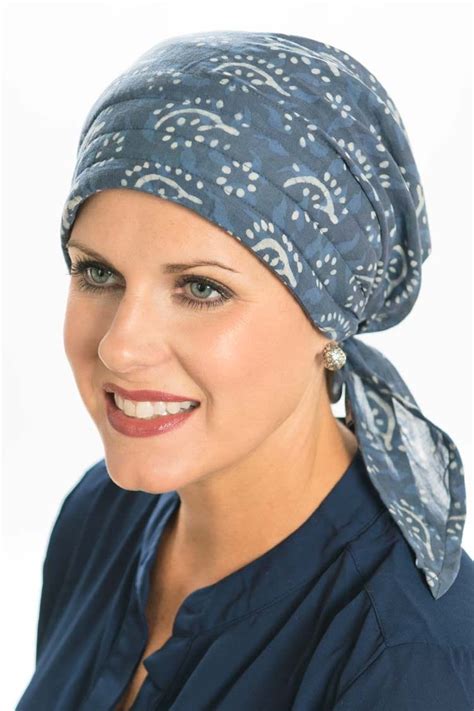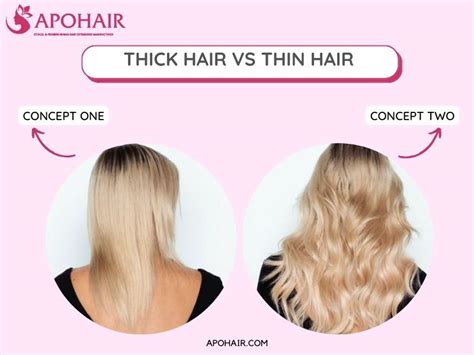Introduction
Hair plays a significant role in our appearance, confidence, and overall well-being. However, the characteristics of our scalp and hair can vary greatly, affecting the way we style and care for our locks. One fundamental difference is whether we have a fine or thick scalp. Understanding the distinctions between the two can help us optimize our hair care routines and achieve the healthiest, most beautiful results.

Characteristics of Fine and Thick Scalps
Fine Scalp
- Hair Density: Fine scalps typically have a lower density of hair follicles, resulting in fewer strands of hair per square inch.
- Hair Diameter: Individual hair strands are thinner and finer, giving the hair a delicate and lightweight feel.
- Scalp Visibility: The scalp is more visible through the hair, especially under bright lights or when the hair is pulled back.
- Oily Tendency: Fine scalps tend to produce more oil, leading to hair that becomes greasy faster.
- Prone to Breakage: Thinner hair strands are more susceptible to breakage, especially when wet or styled with heat.
Thick Scalp
- Hair Density: Thick scalps have a higher density of hair follicles, producing a fuller and more voluminous appearance.
- Hair Diameter: Individual hair strands are thicker and coarser, giving the hair a stronger and more durable texture.
- Scalp Coverage: The scalp is less visible through the hair, providing better coverage and a more even distribution of volume.
- Dry Tendency: Thick scalps tend to produce less oil, resulting in hair that stays clean and fresh for longer periods.
- Less Prone to Breakage: Thicker hair strands are more resistant to breakage, making them better suited for frequent styling and manipulation.
Why Scalp Thickness Matters
The thickness of your scalp can significantly impact the overall health and appearance of your hair.
- Hair Volume and Growth: A thick scalp promotes hair growth and volume due to the greater number of hair follicles.
- Hair Strength and Durability: Thicker hair strands are more resistant to damage, resulting in healthier and less frizzy hair.
- Scalp Health: A thick scalp provides better coverage and protection for the scalp, reducing irritation and promoting optimal scalp health.
- Styling Versatility: Thick scalps allow for a wider range of styling options, from sleek bobs to voluminous layers.
- Confidence and Self-Esteem: Healthy, vibrant hair can boost confidence and self-esteem, regardless of the thickness of your scalp.
Benefits of Embracing Your Scalp Type
Embracing your unique scalp type can lead to numerous benefits:
- Customized Hair Care: Tailoring your hair care routine to the specific needs of your scalp can optimize its effectiveness.
- Informed Styling Decisions: Understanding your scalp’s characteristics will guide you in selecting the right styling products and techniques.
- Reduced Hair Damage: Adopting gentle hair care practices that respect the delicate nature of your scalp can minimize breakage and other forms of damage.
- Improved Scalp Health: Maintaining a balanced scalp ecosystem with appropriate products and treatments can prevent scalp issues and keep your hair looking its best.
- Acceptance and Appreciation: Embracing your unique scalp thickness fosters a positive body image and appreciation for your natural features.
Fine vs. Thick Scalp: Hair Care Considerations
Fine Scalp
- Shampoo: Use gentle, volumizing shampoos designed for fine hair to avoid weighing it down.
- Conditioner: Focus on using lightweight conditioners at the ends of your hair to prevent greasiness.
- Styling Products: Choose root-lifting sprays, volumizers, and mousses to enhance volume without flattening your hair.
- Avoid Heavy Products: Steer clear of thick creams, pomades, and serums that can weigh down your hair.
- Regular Trims: Regular trims remove split ends and promote healthy hair growth.
Thick Scalp
- Shampoo: Opt for clarifying shampoos that remove excess oil and buildup without stripping your hair of its natural oils.
- Conditioner: Deep conditioning treatments applied from mid-lengths to ends can nourish and hydrate thick hair.
- Styling Products: Use styling products that define and enhance your curls or waves without creating excess weight.
- Detangling: Wide-toothed combs or detangling brushes help remove tangles without causing breakage.
- Avoid Over-Washing: Wash your hair less frequently to prevent dryness and maintain its natural oils.
How to Determine Your Scalp Thickness
There are a few simple ways to determine the thickness of your scalp:
- Hair Pull Test: Gently pull a small section of hair from your scalp. If it breaks easily, you likely have a fine scalp. If it resists breaking, you likely have a thick scalp.
- Scalp Visibility Test: Stand in front of a mirror under bright light. If you can clearly see your scalp through your hair, you likely have a fine scalp. If your scalp is less visible, you likely have a thick scalp.
- Strand Diameter Test: Take a single hair strand and compare its diameter to a piece of thread or sewing needle. If the hair strand is thinner than the thread, you likely have a fine scalp. If it is thicker than the thread, you likely have a thick scalp.
Tips for Caring for Fine or Thick Scalps
Regardless of your scalp thickness, following these general hair care tips can help you maintain healthy, beautiful hair:
- Use high-quality hair care products specifically formulated for your hair type.
- Wash your hair as often as needed to remove dirt and buildup without over-stripping your hair of its natural oils.
- Use heat protectant spray before using heat styling tools to minimize damage.
- Get regular trims to remove split ends and promote hair growth.
- Eat a healthy diet rich in fruits, vegetables, and whole grains to nourish your hair from within.
- Manage stress, as it can contribute to hair loss and scalp issues.
- Consult with a dermatologist or trichologist if you have any concerns about your scalp or hair health.
Frequently Asked Questions
1. Can scalp thickness change over time?
Yes, scalp thickness can change due to factors such as aging, hormonal changes, and certain medical conditions.
2. Is it possible to have a combination of fine and thick scalp?
Yes, it is possible to have a combination of fine and thick scalp, with some areas having more hair follicles than others.
3. How often should I shampoo and condition my hair?
The frequency of shampooing and conditioning depends on your scalp type, activity level, and hair texture. For fine hair, shampooing every other day may be sufficient, while thick hair may require washing every 2-3 days.
4. Can styling products damage my scalp or hair?
Some styling products, especially those containing harsh chemicals, can damage your scalp or hair if used excessively. Choose products that are gentle and suitable for your hair type.
5. Is it essential to use hair masks or treatments?
Hair masks and treatments can provide deep conditioning and nourishment for your hair, especially if you have thick or damaged hair. However, they should not be used more than once or twice a week to prevent buildup.
6. When should I consult a hair specialist?
If you experience excessive hair loss, scalp irritation, or other hair or scalp concerns that do not resolve with home care, it is advisable to consult a hair specialist for professional advice and treatment.
